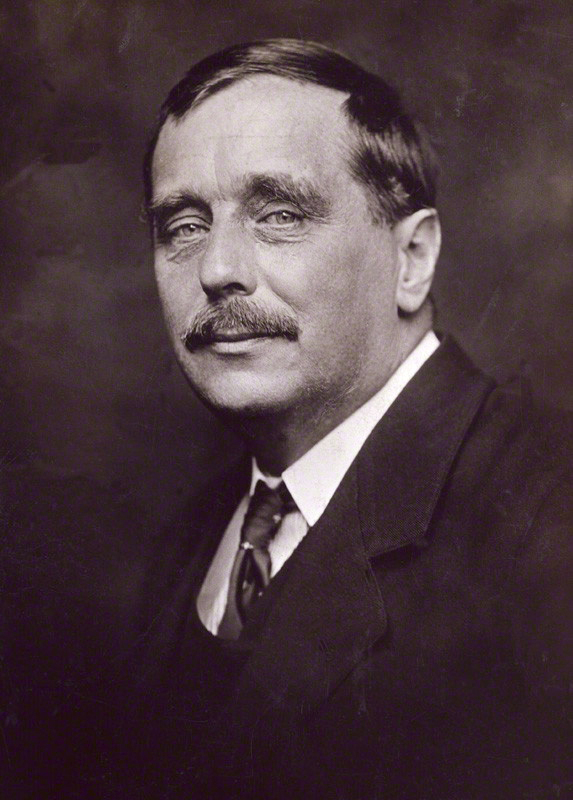Original engl.: "Countless people, from maharajas to millionaires and from pukha sahibs to pretty ladies, will hate the new world order, be rendered unhappy by the frustration of their passions and ambitions through its advent and will die protesting against it." - The New World Order (1940) p. 127 books.google http://books.google.de/books?id=hzpR2uASeT8C&pg=PA127
Herbert George Wells Berühmte Zitate
Die Zeitmaschine, dtv München, 8.Auflage Mai 2002, ISBN 3-423-12234-X, Seite 25
Original engl.: "What was this time travelling? A man couldn't cover himself with dust by rolling in a paradox, could he?" - The Time Machine, ch. 2 fourmilab.ch http://www.fourmilab.ch/etexts/www/wells/timemach/html/timemach_chap2.html
„Moralische Entrüstung ist Eifersucht mit einem Heiligenschein.“
Original engl.: "Moral indignation is jealousy with a halo." - The Wife of Sir Isaac Harman (1914), in: The works of H.G. Wells, Band 16, Scribner 1924, p. 288 books.google http://books.google.de/books?id=oapbAAAAMAAJ&q=halo
Menschen, Göttern gleich
Original engl.: "And we know to-day--how little we know. There is never an observation made but a hundred observations are missed in the making of it; there is never a measurement but some impish truth mocks us and gets away from us in the margin of error." - Men Like Gods (1923), III 3. The Service of the Earthling http://gutenberg.net.au/ebooks02/0200221.txt
Herbert George Wells: Zitate auf Englisch
Quelle: The Island of Doctor Moreau (1896), Ch. 16: How the Beast Folk Tasted Blood
“The Boss: You are not mechanics, you are warriors. You have been trained, not to think, but to do.”
Things to Come (1936)
“How small the vastest of human catastrophes may seem at a distance of a few million miles.”
"The Star", final line, first published in The Graphic, Christmas issue (1897)
“Our true nationality is mankind.”
Quelle: The Outline of History (1920), Ch. 41
“For crude classifications and false generalisations are the curse of all organised human life.”
Quelle: A Modern Utopia (1905), Ch. 10, sect. 1
Quelle: The Island of Doctor Moreau (1896), Ch. 14: Doctor Moreau Explains
“Rowena: You’ve got the subtlety of a bullfrog.”
Things to Come (1936)
Quelle: The Invisible Man (1897), Chapter 20: At the House In Great Portland Street
"What I Believe", The Listener, 1929. Quoted in Clifton Fadiman, I Believe, London, George Allen and Unwin, 1940.
The Rights of Man, or what are we fighting for? (1940)
“The uglier a man's legs are, the better he plays golf. It's almost a law.”
Bealby: A Holiday (1915)
Quelle: The Island of Doctor Moreau (1896), Ch. 21: The Reversion of the Beast Folk
“An artist who theorizes about his work is no longer artist but critic.”
The Temptaion of Harringay (1929)
Book I, Ch. 7: How I Reached Home
The War of the Worlds (1898)
“Adapt or perish, now as ever, is Nature's inexorable imperative.”
The Mind at the End of its Tether (1945), p. 19
